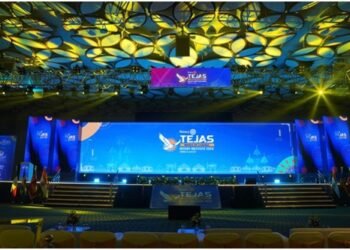The Delhi High Court’s decision will be closely watched. At stake is the fine balance between reputation, legal protection, and the freedom of India’s press.
The upcoming hearing on September 22 is crucial. It is not only about one platform and one businessman. It is about the rights of journalists to report freely, the limits of government power, and the ability of citizens to access information.
NEW DELHI (India CSR): On September 16, the Central government ordered digital news platform Newslaundry to remove content about industrialist Gautam Adani and Adani Enterprises Limited (AEL). The directive asked the portal to comply with a trial court injunction. Two days later, Newslaundry moved the Delhi High Court against the order. The case is now at the center of a debate on press freedom, executive power, and corporate influence.
Court Proceedings
The matter was listed before Justice Sachin Datta on Friday. However, the judge rose early due to prior commitments. As a result, the petition will now be heard on September 22.
For Newslaundry, the delay means more uncertainty. The content in question remains under threat of removal. The platform is waiting for judicial clarity.
Government Order
The government’s order was issued through an official communication on September 16. It asked Newslaundry to “take appropriate action” in line with a trial court order dated September 6. The trial court had passed an injunction in a civil dispute involving Adani Enterprises Limited.
Newslaundry argues that the Centre went beyond the court’s directions. According to the plea, the government has misused its authority by ordering blanket removal of reports, not just those flagged as defamatory.
Also Read: The Adani Content Takedown – India CSR
Newslaundry’s Argument
In its petition, filed through advocates Uddhav Khanna and Dhruva Vig, Newslaundry made a strong case. It said its stories on Adani were based on facts and fell within the scope of journalistic duty.
The plea stated:
“The Respondent [Central government] has gone over and above the directions of the Ld Trial Court, by requiring the Petitioner to remove all and every video/publication/reporting on Adani Enterprises Limited, without considering that such content may be simple reporting on facts or current affairs.”
The platform stressed that there was no defamatory intent. Instead, the order was being used to shield a private party from public scrutiny.
Freedom of Press at Stake
Newslaundry also questioned the constitutional validity of the order. The petition said the Centre’s action amounted to a violation of Article 19, which guarantees freedom of speech and expression.
“It is evident that the Respondent acted to protect private interests, in grave violation of Article 19,” the petition noted.
The platform called the directive “administrative overreach” and said it lacked any legal or statutory basis. It argued that the executive cannot enforce civil court orders in this manner.
Blanket Ban Allegation
The petition pointed out that the order effectively imposes a blanket ban on reporting anything critical of Adani.
“The Impugned Order is nothing short of arbitrary exercise of executive power,” Newslaundry said.
The plea underlined the principle of separation of powers. According to it, the government cannot intervene in a civil dispute to enforce orders that only bind the parties involved.
Broader Implications
The case highlights a growing tension between media independence and corporate power in India. Adani Enterprises, part of the Adani Group led by Gautam Adani, has often been in the news over regulatory scrutiny, market allegations, and its rapid business expansion.
Newslaundry’s legal battle reflects a larger question: can the government compel news outlets to take down stories that are unfavorable to big business? If yes, what does this mean for democracy and accountability?
Background: Adani in Focus
Adani Enterprises Limited is the flagship company of the Adani Group. The conglomerate is active in ports, energy, airports, mining, and infrastructure. Its founder, Gautam Adani, is among India’s richest businessmen.
The company has faced repeated controversies. From the 2023 Hindenburg Research report alleging stock manipulation to ongoing legal challenges, the group has been under intense media and market scrutiny. News platforms like Newslaundry have reported on these issues, often critically.
Legal Path Ahead
The High Court will now decide whether the government order stands or falls. If the court sides with Newslaundry, it will mark a victory for press freedom. If not, it may set a precedent for future takedowns.
For now, Newslaundry’s content is at the heart of the case. But the ruling will likely impact all digital media outlets in India.
(India CSR)






















